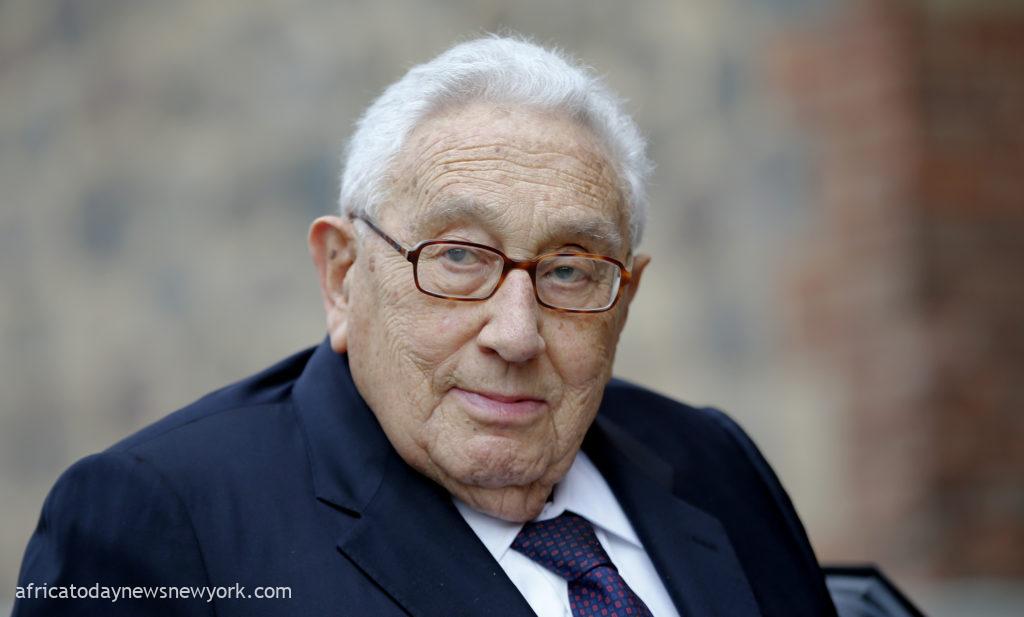Henry Kissinger, the former US Secretary of State who held a central and divisive role in shaping American foreign policy throughout the Cold War, passed away at the age of 100.
Long after he departed from office in the mid-1970s, leaders from successive generations consistently turned to him for guidance and consultation for decades.
Throughout the Nixon and Ford administrations, he functioned as America’s foremost diplomat and national security adviser.
The ex-diplomat, who hailed from Germany, died peacefully at his Connecticut residence.
Kissinger’s adoption of Realpolitik tactics stirred controversy, with critics pointing to alleged war crimes during the bombing campaign against Vietnamese communists in Cambodia alongside President Richard Nixon.
Over the years, he endured harsh criticism from those who alleged that he prioritized the Cold War rivalry with the Soviet Union over human rights, supporting oppressive regimes globally, including Augusto Pinochet’s in Chile.
Former US President George W Bush led tributes, saying the US had ‘lost one of the most dependable and distinctive voices on foreign affairs’.
Meanwhile, former UK Prime Minister Tony Blair described him as an artist of diplomacy, saying Kissinger was motivated by ‘a genuine love of the free world and the need to protect it’.
Read also: Putin Plans ‘Loyalty’ Pledge For Foreigners To Enter Russia
President Richard Nixon’s daughters, Tricia Nixon Cox and Julie Nixon Eisenhower, said that Kissinger’s life story was ‘so unique – and so thoroughly American’.
‘Henry Kissinger will long be remembered for his many achievements in advancing the cause of peace,’ the statement said. ‘But it was his character that we will never forget.’
In 1923, born in Germany, the son of a schoolteacher first came to the US in 1938, escaping the Nazis with his family. His native Bavarian accent remained a distinctive part of his speech.
In 1943, he attained US citizenship and proceeded to serve three years in the US Army, followed by a term in the Counter Intelligence Corps.
With bachelor’s, master’s, and PhD degrees under his belt, he ventured into academia, becoming a professor of international relations at Harvard.
Appointed by then-President Nixon in 1969, he assumed the role of national security adviser, wielding substantial influence over US foreign policy.
Over the course of eight years, serving as both national security adviser and secretary of state from 1969 to 1977, he played a crucial role in concluding the US involvement in the Vietnam War.
Additionally, he initiated diplomatic relations with China and orchestrated a cessation of hostilities in the 1973 Yom Kippur War in the Middle East involving Egypt, Syria, and Israel.

